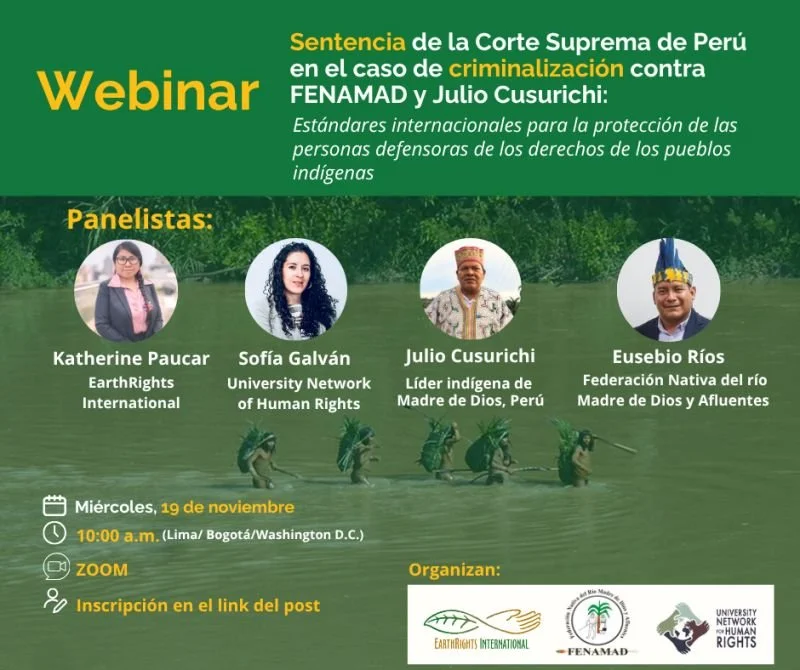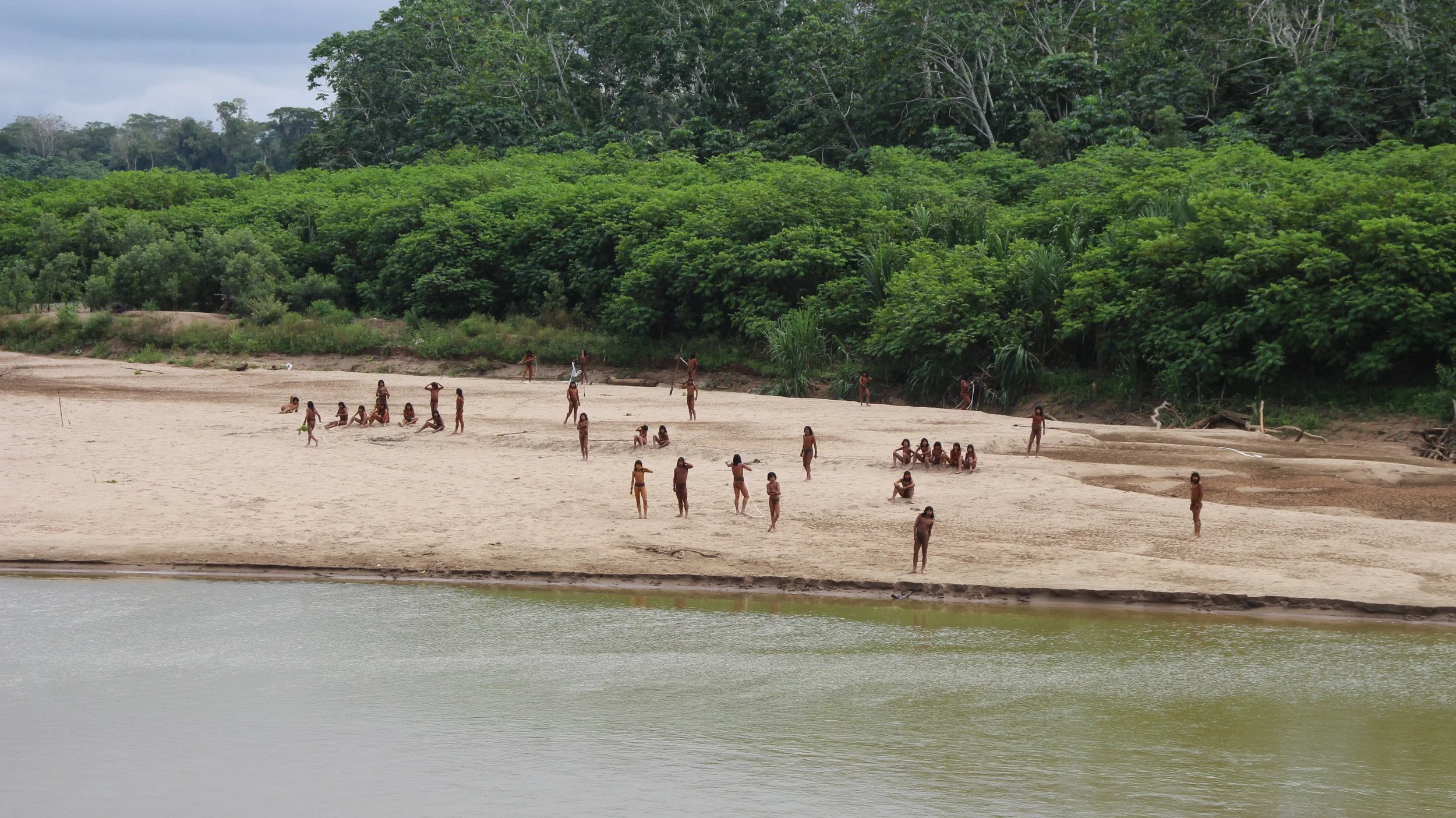Criminalization of Indigenous Land Defenders in Peru
The Mashco Piro Indigenous People live in voluntary isolation, without contact with other Indigenous groups or outside society in general. Their survival is at risk, as they are vulnerable to regular and irregular deforestation, forced contact caused by extractive industry activities and inadequate protection of their territory, exposure to diseases to which they lack immunity, and the climate emergency.
The Native Federation of the Madre de Dios River and Affluents (FENAMAD) is an organization led by Indigenous people working in defense of the rights of Indigenous peoples in isolation, including the Mashco Piro. FENAMAD is now the target of a defamation case brought by Canales Tahuamanu S. A. C., a logging company operating in Mashco Piro territory, whose deforestation of the protected area FENAMAD has actively opposed.
Image credit: FENAMAD
UNHR has participated in FENAMAD's defense by preparing a brief that was submitted to the Supreme Court of Justice in Peru in May, 2025. The brief, drafted by UNHR legal experts, draws on analysis by a student from the Yale School of the Environment about the special situation of risk faced by Indigenous peoples in isolation, including the Mashco Piro, as well as violence and criminalization of Indigenous people who defend the territory and the environment.
The brief was signed by the Transamerican Advocate and Scholars Network (Juristas Unidos en Red Interamericana — JURISTAS Network) that includes former commissioners of the Inter-American Commission on Human Rights, current and former UN experts, and other leading experts and scholars. JURISTAS Network urged the Peruvian Supreme Court to decide this emblematic case in FENAMAD's favor based on the most protective international human rights standards. On May 30, we appeared before the Supreme Court to present our main arguments contained in the amicus brief.
On July 21, 2025, the Supreme Court of Peru issued a ruling in favor of FENAMAD and its former president, Julio Cusurichi Palacios, who had been criminalized for his work defending the territory and other rights of the Mashco Piro Indigenous People. Several of the arguments cited by the Court are consistent with those presented in the amicus curiae submitted by UNHR and the Red de Juristas Unidos en Red Interamericana – Transamerican Advocate and Scholars Network (JURISTAS Network).
On November 19, the organization representing the Mashco Piro people, together with EarthRights International and UNHR, will hold an event to present the impact of our amicus brief on the protection of the rights of this Indigenous group living in isolation.
See more in Project Publications below.





